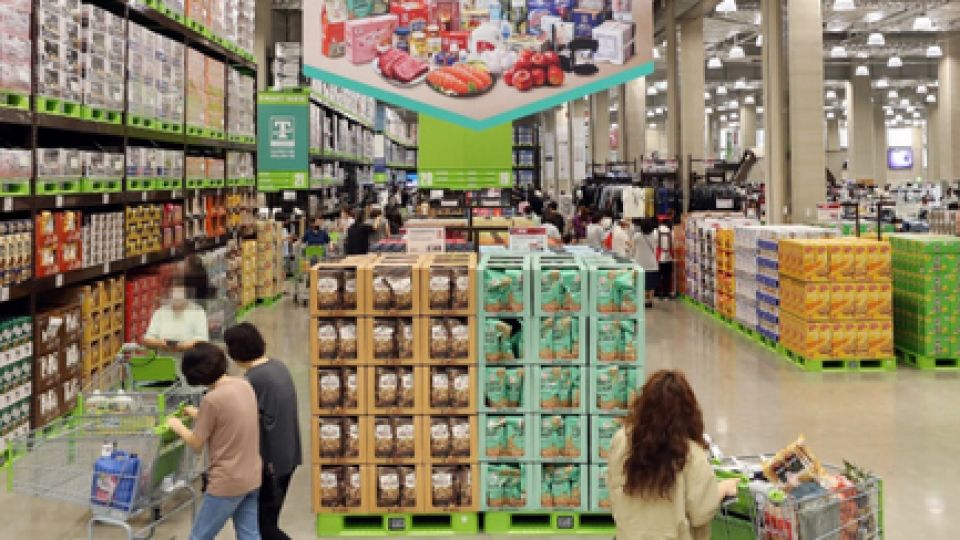June 12, 2024
SEOUL – Warehouse stores in Korea have seen a rise in sales, drawn by bulk sizes of fresh ingredients at lower prices as people opt for cooking at home rather than eating out, amid increasing prices.
From January through April, sales of Traders Wholesale Club, the warehouse-type discount store owned by E-mart, increased by 8.6 percent, according to the company on Sunday.
In contrast, both E-mart’s discount stores and its no-frills No Brand stores experienced a decline in sales, with decreases of 1 percent and 7.8 percent, respectively, over the same period.
Sales per Traders store, in particular, stood at 53.3 billion won ($38.6 million), almost twice those of E-mart stores, which recorded 29.6 billion won during the same period. This gap increased from last year’s 19.2 billion won. Currently, there are 22 Traders stores and 133 E-mart stores in Korea.
Similarly, Lotte Mart Maxx — Traders’ smaller rival — experienced approximately a 10 percent increase in sales in the first five months of the year compared to the same period last year. Its sales growth rate exceeded that of Lotte Mart stores, which saw a decrease of 1.3 percent, and Lotte Super stores, which had an increase of 0.9 percent.
An official from Traders said that the company attributes the increase in sales to rising dining-out prices. “It seems that consumers, feeling burdened by the recent increase in restaurant prices, are choosing to cook at home and look for more affordable products.”
Over the past three years, prices for dining out in Korea have risen sharply, even exceeding the average increase in consumer prices, according to Statistics Korea. In May alone, the prices increased by 2.8 percent, while overall consumer prices increased by 2.7 percent. The surge in dining out prices continued for 36 consecutive months.
Additionally, the official explained that consumers may find warehouse stores more attractive due to their price competitiveness, with prices on average 10 to 15 percent lower than at discount stores.
“Even though consumers have to separate and store these bulk products themselves, they increasingly buy them due to their price competitiveness compared to preportioned products,” the official said.
At Traders, sales of bulk livestock products, including pork and beef, increased by 35 percent in the first five months of the year compared to last year. Sales of fruits and vegetables increased by 38 percent and 30 percent, respectively.
Along with the growing trend in sales, both Traders and Maxx announced plans to increase their store numbers, with Traders planning to add two more stores by 2026.
Market tracker Euromonitor predicts that the size of Korea’s warehouse discount store market, which was 6.8 trillion won in 2019, will surpass 9 trillion won for the first time this year.
In 2023, Costco Korea, the Korean unit of the American retail giant, also reported a 9.6 percent increase in sales, reaching 6.07 trillion won.


